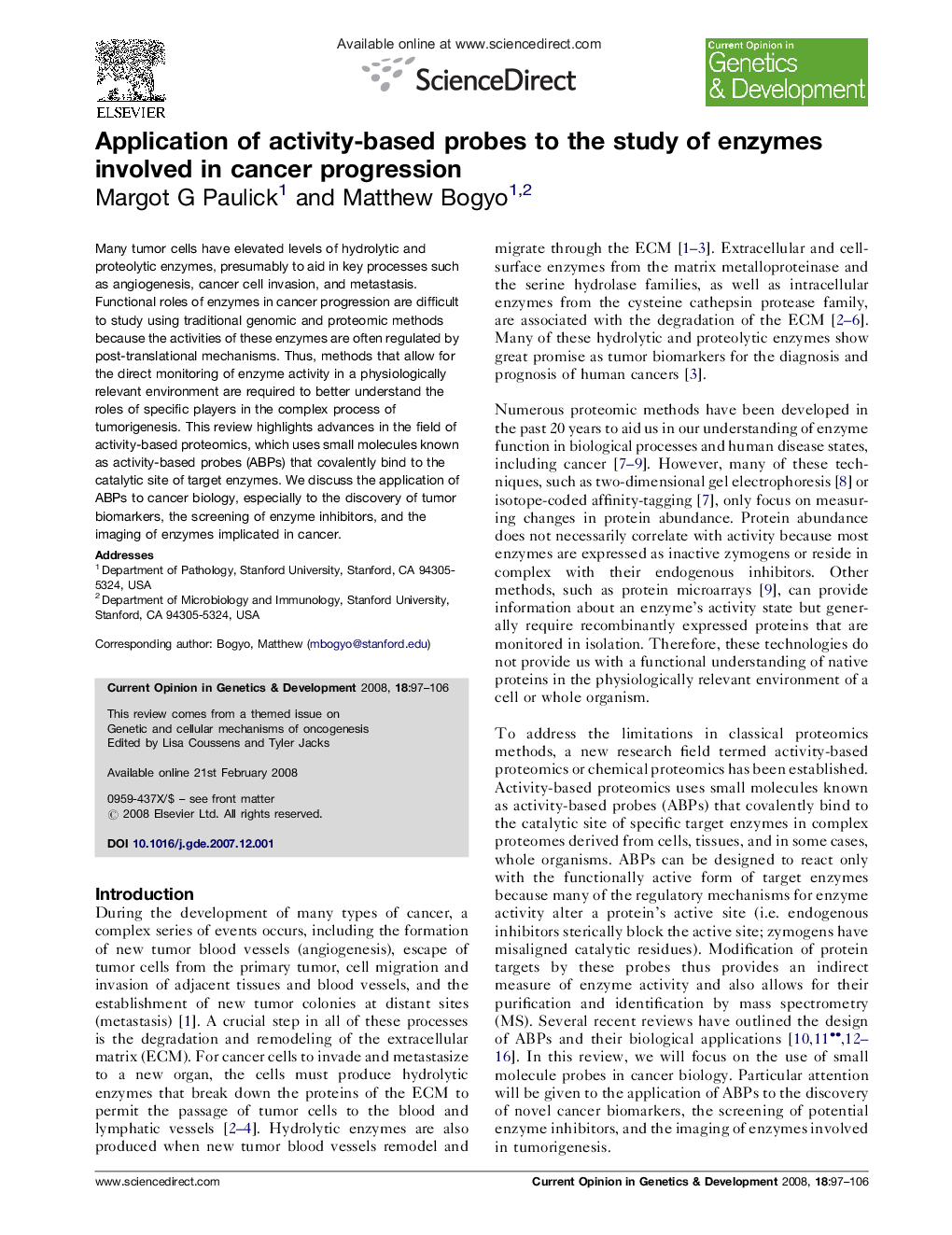| Article ID | Journal | Published Year | Pages | File Type |
|---|---|---|---|---|
| 2785136 | Current Opinion in Genetics & Development | 2008 | 10 Pages |
Many tumor cells have elevated levels of hydrolytic and proteolytic enzymes, presumably to aid in key processes such as angiogenesis, cancer cell invasion, and metastasis. Functional roles of enzymes in cancer progression are difficult to study using traditional genomic and proteomic methods because the activities of these enzymes are often regulated by post-translational mechanisms. Thus, methods that allow for the direct monitoring of enzyme activity in a physiologically relevant environment are required to better understand the roles of specific players in the complex process of tumorigenesis. This review highlights advances in the field of activity-based proteomics, which uses small molecules known as activity-based probes (ABPs) that covalently bind to the catalytic site of target enzymes. We discuss the application of ABPs to cancer biology, especially to the discovery of tumor biomarkers, the screening of enzyme inhibitors, and the imaging of enzymes implicated in cancer.
